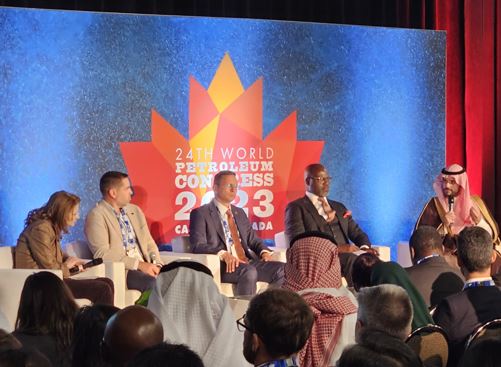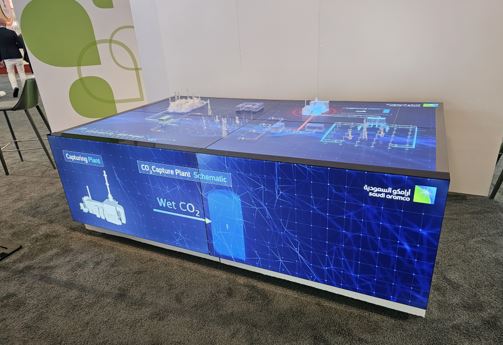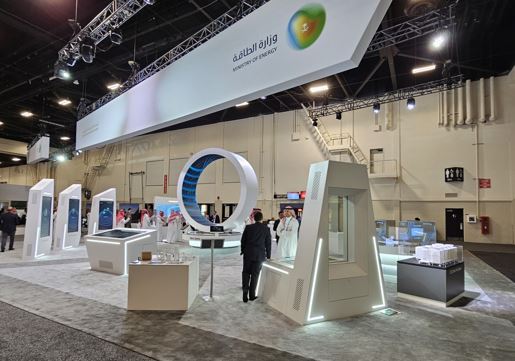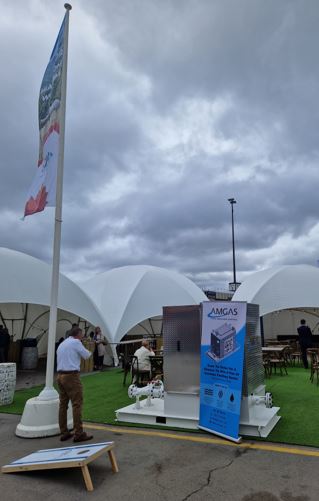Energy Transition: The Path to Net Zero. This was the main theme of the World Petroleum Congress held in Calgary this September. Among the participants was Zdeněk Dundr, who represented MERO ČR as Vice-Chairman of the Board of Directors.

“Sustainability, security and availability of energy were among the main topics discussed. The world is changing dramatically, and so are the issues of energy transition. There are notable differences in the approach to this challenge between North America and Europe, particularly in terms of production costs and political incentives versus regulatory-driven transformation. Europe will have to start addressing this issue or risk losing its long-term competitiveness.
The price inputs for gas and other types of energy are set quite differently for manufacturing companies, households and businesses,” said Zdeněk Dundr, Vice-Chairman of the Board of MERO ČR.
According to international experts, global energy demand will continue to grow, despite the predicted massive increase in the use of more energy-efficient and energy-saving solutions. The increase in demand will be driven by the demographic growth of the world’s population and the rising economic levels of developing regions. A big question mark therefore remains over the shortfall in energy sources when coal mining comes to an end. What will replace it? According to Dundr, oil and gas will continue to be important sources of energy, especially in Europe, as new green sources such as wind, solar or hydrogen, combined with existing nuclear power, have no chance of filling this gap in the medium term.
The energy transition is closely linked to the much-discussed issues of resource self-sufficiency and energy security. The issue resonated at the Calgary Congress and is being addressed by a number of countries across continents, including the Czech Republic.
The Czech Republic is facing a major change as well. After more than sixty years, our country will no longer be dependent on Russian crude oil imported via the eastern route through the Druzhba pipeline.
“MERO ČR is working on a project entitled TAL-PLUS. It envisages increasing the capacity of the TAL – the Transalpine Pipeline. By increasing the capacity of the TAL, the Czech Republic will receive an additional 4 million tonnes of crude oil per year via the western route. Together, the TAL and the IKL pipeline, which connects to the TAL, will be able to supply the Czech Republic with up to 8 million tonnes of oil per year. This will fully cover the country’s needs,” adds Zdeněk Dundr.
The World Petroleum Congress was also very inspiring for MERO ČR in many ways.
“In Canada, I had the opportunity to see many technological innovations, not only in the field of crude oil transportation. For example, I found the presentation of pilot projects that employ liquid carriers to transport hydrogen, making full use of the existing pipeline infrastructure, very inspiring,” said Zdeněk Dundr.
World Petroleum Congress
The WPC takes place every three years and is hosted by a different country each time. This year it was held for the twenty-fourth time. The event took place from 17 to 21 September in Calgary, Canada, and was attended by over 10,000 participants from 250+ companies based in 109 countries. Dubbed the “Oil Industry Olympics”, participants include oil companies, government officials, regulators, other industries, NGOs and international institutions. The WPC features discussions focusing on the oil industry, the energy transition and its impact on the global economy.



